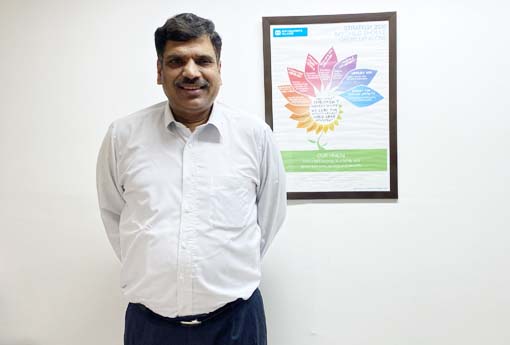- मणिपाल हॉस्पिटल्स ने पूर्वी भारत का पहला एआई-संचालित इंजेक्टेबल वायरलेस पेसमेकर सफलतापूर्वक स्थापित किया
- Manipal Hospitals successfully performs Eastern India’s first AI-powered injectable wireless pacemaker insertion
- Woxsen University Becomes India’s First Institution to Achieve FIFA Quality Pro Certification for RACE Football Field
- यूनियन बैंक ऑफ इंडिया ने यू – जीनियस राष्ट्रीय प्रश्नोत्तरी फिनाले में प्रतिभाशाली युवाओं का किया सम्मान
- Union Bank of India Celebrates Bright Young Minds at U-Genius National Quiz Finale
Safeguarding Child Rights at the Times of Pandemic

As people rebuild their lives post lockdown, they face new realities and feel the need to change their ways and means. The arena of the development sector is no different. In particular, the pandemic has brought to the forefront the challenges of protecting and upholding the wellbeing of children, young people, their families and communities, especially those marginalised, worldwide.
Millions have been rendered homeless and without a livelihood. The health and safety of their children are endangered. A long-term adverse impact on children’s health, development and overall wellbeing are inevitable.
Children without parental care or those at the risk of losing one are among the most vulnerable. It is perhaps debatable whether the virus per se affects children as severely as adults, but it is certain that children are adversely impacted by containment measures.
School closures and isolation have meant that they are deprived of quality education, face to face interaction and playtime with other children and social connect at large. While this phase might be an aberration to most adults, it is however rather disruptive for children, who are in their formative years, denying them opportunities for physical, intellectual and emotional well-being and development.
Their survival, developmental, protection and participation rights are at stake. All children’s rights must be protected, promoted and taken into consideration in response to the COVID-19 outbreak and its aftermath.
Among the most vulnerable children, who get left out in the developmental agenda are ‘Children without Parental Care’. The United Nations Convention on the Rights of the Child (UNCRC) mandates that every child has a right to a family and that “children have the best chance of developing their full potential in a family environment”.
Family-Like Alternative care for ‘children without parental care’ where the best interests of a child are the primary consideration, upholds and protects the principles of non-discrimination as well as their rights.
Therefore, more developmental efforts must be channeled to the welfare of children without parental care as well as those who are at the risk of losing it. It is critical to ensure that child protection initiatives are geared to prevent unnecessary family separation. This can be done by providing social protection services that support the income of families and their wellbeing.
Such services can include: implementing or augmenting cash transfer programs, improving access to health, education, disability services, and housing during and after the outbreak; and directly delivering food, hygiene items and kits, education/play materials; enhancing connectivity access for remote education to bridge the digital divide, and to provide parenting support; and expanding access to mental health and psychosocial support to address the consequences of isolation on children and their families.
And in the case of children who are separated from their families, and are now without parental care, we should guarantee good quality alternative care. It is all about building a safe environment – a place children without parental care can call ‘home’, where they grow to achieve their true potential.
Also, we must not forget social workers who are at the forefront of containing and mitigating the impact of the pandemic on our children and their families. No resources should be spared to ensure the well-being, health, protection, training, preparedness and labor rights of social workers so that they can continue making their invaluable contributions.
COVID-19 should never be used as a reason or an excuse to regress or neglect the protection of the rights of all children, especially those most vulnerable. Promoting and protecting child rights is a moral obligation.
We, the civil society, the government, the private sector as well as the communities need to come together to help every child build a future, support every family, and strengthen our society as a whole.
Reflecting on how to bring our lives back to gear after the pandemic and to build back a better world, we cannot help but think about how we must stand together stronger at these unprecedented times.
SOS Children’s Villages of India stands ready to share our expertise and do our part to secure the rights of all children without or at risk of losing parental care. The time to act is now.
- Mr. Sumanta Kar, Senior Deputy National Director SOS Children’s Villages of India


